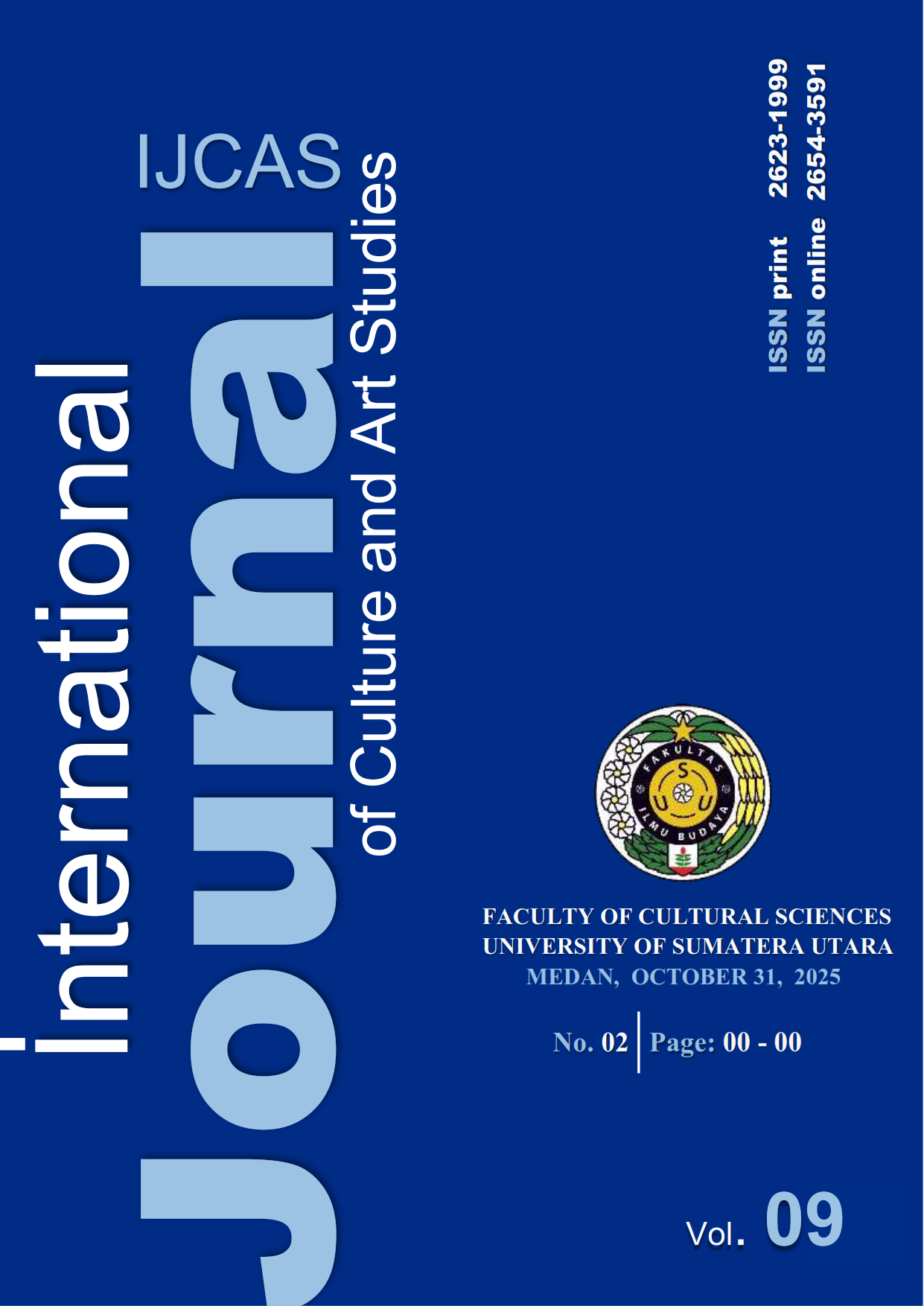Collocations of effective and efficient in COCA: A corpus analysis
DOI:
https://doi.org/10.32734/ijcas.v9i2.22811Keywords:
Corpus-based study, Effective, Efficient, Collocation, Degree of formalityAbstract
This corpus-based study analyses two adjectives often perceived as synonymous, effective and efficient, by examining their collocations and formality levels in the Corpus of Contemporary American English (COCA). A qualitative content analysis was applied to 400 concordance lines, evenly divided between the two adjectives. The analysis involved selecting content, categorising data, developing coding rules, coding texts, and interpreting results. Collocational structures such as adjective + preposition, adjective + to-infinitive, adjective + that-clause, adverb + adjective, and adjective + noun were identified. The findings show that effective frequently collocates with nouns related to outcomes and appears predominantly in formal contexts, especially academic writing. In contrast, efficient commonly collocates with nouns related to processes and is used more flexibly across genres, including blogs and magazines. Grammatically, effective often combines with the prepositions in and at, while efficient shows greater variety and frequently occurs in to-infinitive and that-clause constructions. The study concludes that effective and efficient have distinct collocational patterns, grammatical behaviours, and degrees of formality, making them not fully interchangeable in all contexts.
Downloads
References
Anggita. (2023). English collocations of the verb “explored” on the Corpus of Contemporary American English (COCA): A corpus-based analysis [Thesis]. Universitas Sumatera Utara.
Baker, P., & Egbert, J. (Eds.). (2016). Triangulating methodological approaches in corpus-linguistic research. Routledge.
Barowski, S. (2021). Formal vs. informal language: Definition and examples. Cambridge University Press.
Benson, M., Benson, E., & Ilson, R. (1986). The BBI combinatory dictionary of English: A guide to word combinations. John Benjamins.
Biber, D. (2010). Corpus-based investigations of language use. In B. Heine & H. Narrog (Eds.), The Oxford handbook of linguistic analysis (pp. 159–182). Oxford University Press.
Biber, D., Reppen, R., & Friginal, E. (2010). Research in corpus linguistics. In R. B. Kaplan (Ed.), The Oxford handbook of applied linguistics (2nd ed., pp. 548–570). Oxford University Press.
Brezina, V., McEnery, T., & Wattam, S. (2015). Collocations in context: A new perspective on collocation networks. International Journal of Corpus Linguistics, 20(2), 139–173. https://doi.org/10.1075/ijcl.20.2.01bre
Burches, E., & Burches, M. (2020). Efficacy, effectiveness, and efficiency in health care: The need for an agreement to clarify its meaning. Journal of Public Health, 42(3), 341–345.
Davies, M. (2008). The Corpus of Contemporary American English (COCA). https://www.english-corpora.org/coca/
Fathi, M. (2023). Adverbs nevertheless and nonetheless in Corpus of Contemporary American English (COCA): A corpus-based analysis. Universitas Sumatera Utara.
Luo, X. (2022). Content analysis: A systematic approach to textual data. Journal of Qualitative Research Methods, 14(1), 27–45.
Lyons, J. (1981). Language, meaning and context. Cambridge University Press.
Mansour, D. M. (2017). Using COCA to foster students’ use of English collocations in academic writing. In 3rd International Conference on Higher Education Advances (HEAd’17). https://doi.org/10.4995/HEAd17.2017.5301
McEnery, T., & Hardie, A. (2012). Corpus linguistics: Method, theory and practice. Cambridge University Press.
Moon, R. (1998). Fixed expressions and idioms: A corpus-based approach. Oxford University Press.
Quirk, R., Greenbaum, S., Leech, G., & Svartvik, J. (1985). A comprehensive grammar of the English language. Longman.
Schwarz, L. (2024). Efficiency vs. effectiveness: What's the difference? Business Insights Journal, 12(1), 78–95.
Veloso, I. (2023). Corpus of Contemporary American English (COCA) tutorial. In L. Goulart & I. Veloso (Eds.), Corpora in English language teaching: Classroom activities for teachers new to corpus linguistics. Montclair State University.
Wang, J. T., & Good, R. (2007). The repetition of collocations in EFL textbooks: A corpus study. Online Submission, 1–13.
Downloads
Published
How to Cite
Issue
Section
License
Copyright (c) 2025 Deliana, Amanda Fransisca Gultom

This work is licensed under a Creative Commons Attribution-ShareAlike 4.0 International License.













